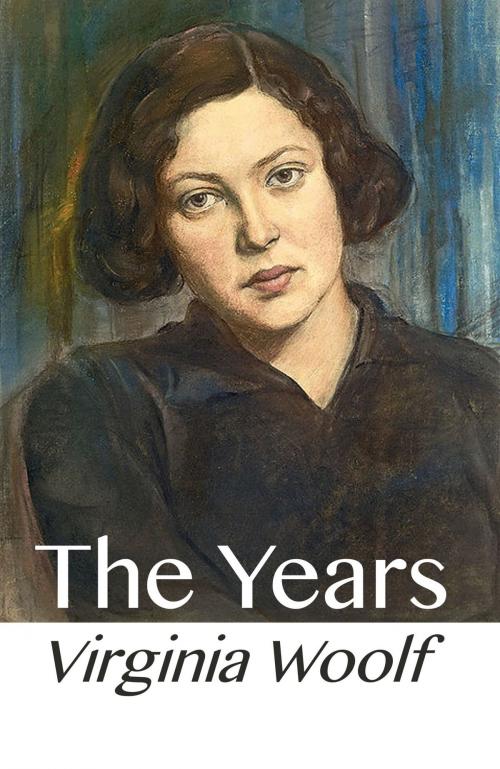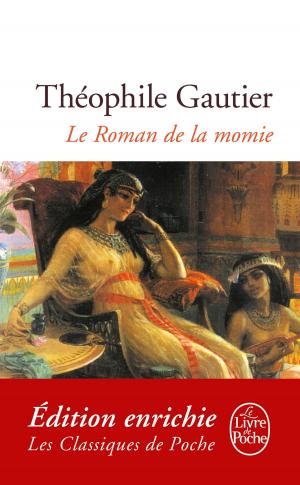| Author: | Virginia Woolf | ISBN: | 1230002475967 |
| Publisher: | LE LIVRE DE POCHE | Publication: | August 12, 2018 |
| Imprint: | Language: | French |
| Author: | Virginia Woolf |
| ISBN: | 1230002475967 |
| Publisher: | LE LIVRE DE POCHE |
| Publication: | August 12, 2018 |
| Imprint: | |
| Language: | French |
On a blustery April afternoon in 1880, Colonel Abel Pargiter sits at the window of his club looking out over Piccadilly. Everyone in the street seems to have somewhere to go, some end in view. The colonel feels that there is nothing for him. At home, in their shabbily genteel house on Abercorn Terrace, his wife is dying of cancer; he has a family of three sons and four daughters to provide for, he is retired, and he is not rich. He decides to visit his mistress, Mira, who lives in a side street near Westminster Abbey. When he arrives, dusk is already falling; it fills the dingy rooms with the secret, furtive atmosphere of lust.
In the same dusk, in the house on Abercorn Terrace, Milly and Delia Pargiter are boiling water for tea. Their younger sister Rose is wearing a green-smudged pinafore, and Milly tries to be severe with her in a grown-up fashion. Twelve-year-old, red-haired Martin comes home from school. When the colonel arrives and asks for Eleanor, his oldest daughter, Milly reminds him that it is Eleanor’s day for social service. Eleanor soon appears, dropping her books on the table. During their mother’s illness she has become the family’s mainstay, the keeper of accounts, the soother of hurts, and the arbiter of quarrels. Delia goes to sit with their mother. She resents Mrs. Pargiter’s illness and the ties of sickness and home; in her imagination, she sees herself on the platform at a political meeting with Charles Stewart Parnell, the great Irish leader, beside her. Morris Pargiter, a young barrister, comes home for dinner. The family members are gathered at the table when Crosby, a servant, brings word that Mrs. Pargiter has suffered a relapse. She dies later that same rainy night.
Rain also falls in Oxford, where Edward Pargiter, a student, puts aside his work and daydreams of his cousin, Kitty Malone, a don’s daughter with whom he is in love. His friend Hugh Gibbs comes in with talk of horses and women. Another friend, Ashley, appears, but Ashley is jealous of Gibbs, and Edward, unhappy and bored, goes off to bed. Kitty Malone, reading history with eccentric Miss Craddock, admires Jo Robson; he reminds her of a young farmhand who had once kissed her under a rick. Mrs. Malone reads the letter that tells of Mrs. Pargiter’s death and thinks of her cousin as a young girl. She decides that Edward will not do; young Lord Lasswade will make a more suitable match. Mrs. Pargiter is buried on a day of shadows and sunshine.
It is cool in England in the autumn of 1891. In the north, Kitty, now Lady Lasswade, shivers as she sits on the terrace with her husband. In Devonshire, Hugh Gibbs tells his wife, Milly, who had been a Pargiter, that the leaves on the trees are still too thick for good hunting. At Oxford, Edward Pargiter, now a don, walks in the crisp air and thinks of poetry. Morris, the lawyer, recalls his childhood as leaves crunch under his feet on the flagstones of the Law Courts. Martin is a soldier in India, and Delia and Rose have left home to lead lives of their own. Only Eleanor remains, tied to her aging father and the house on Abercorn Terrace, keeping accounts, doing social service work, going to the Law Courts with Celia, Morris’s wife, and buying presents for the colonel to give to his nieces Maggie and Sara when he goes to dine with his brother, Sir Digby Pargiter. Sir Digby is in politics; his wife, Eugenie, is pretty and frivolous. The colonel has dinner with Digby and Eugenie on the day that Parnell dies.
By midsummer, 1907, Martin is back from India; he is still...
On a blustery April afternoon in 1880, Colonel Abel Pargiter sits at the window of his club looking out over Piccadilly. Everyone in the street seems to have somewhere to go, some end in view. The colonel feels that there is nothing for him. At home, in their shabbily genteel house on Abercorn Terrace, his wife is dying of cancer; he has a family of three sons and four daughters to provide for, he is retired, and he is not rich. He decides to visit his mistress, Mira, who lives in a side street near Westminster Abbey. When he arrives, dusk is already falling; it fills the dingy rooms with the secret, furtive atmosphere of lust.
In the same dusk, in the house on Abercorn Terrace, Milly and Delia Pargiter are boiling water for tea. Their younger sister Rose is wearing a green-smudged pinafore, and Milly tries to be severe with her in a grown-up fashion. Twelve-year-old, red-haired Martin comes home from school. When the colonel arrives and asks for Eleanor, his oldest daughter, Milly reminds him that it is Eleanor’s day for social service. Eleanor soon appears, dropping her books on the table. During their mother’s illness she has become the family’s mainstay, the keeper of accounts, the soother of hurts, and the arbiter of quarrels. Delia goes to sit with their mother. She resents Mrs. Pargiter’s illness and the ties of sickness and home; in her imagination, she sees herself on the platform at a political meeting with Charles Stewart Parnell, the great Irish leader, beside her. Morris Pargiter, a young barrister, comes home for dinner. The family members are gathered at the table when Crosby, a servant, brings word that Mrs. Pargiter has suffered a relapse. She dies later that same rainy night.
Rain also falls in Oxford, where Edward Pargiter, a student, puts aside his work and daydreams of his cousin, Kitty Malone, a don’s daughter with whom he is in love. His friend Hugh Gibbs comes in with talk of horses and women. Another friend, Ashley, appears, but Ashley is jealous of Gibbs, and Edward, unhappy and bored, goes off to bed. Kitty Malone, reading history with eccentric Miss Craddock, admires Jo Robson; he reminds her of a young farmhand who had once kissed her under a rick. Mrs. Malone reads the letter that tells of Mrs. Pargiter’s death and thinks of her cousin as a young girl. She decides that Edward will not do; young Lord Lasswade will make a more suitable match. Mrs. Pargiter is buried on a day of shadows and sunshine.
It is cool in England in the autumn of 1891. In the north, Kitty, now Lady Lasswade, shivers as she sits on the terrace with her husband. In Devonshire, Hugh Gibbs tells his wife, Milly, who had been a Pargiter, that the leaves on the trees are still too thick for good hunting. At Oxford, Edward Pargiter, now a don, walks in the crisp air and thinks of poetry. Morris, the lawyer, recalls his childhood as leaves crunch under his feet on the flagstones of the Law Courts. Martin is a soldier in India, and Delia and Rose have left home to lead lives of their own. Only Eleanor remains, tied to her aging father and the house on Abercorn Terrace, keeping accounts, doing social service work, going to the Law Courts with Celia, Morris’s wife, and buying presents for the colonel to give to his nieces Maggie and Sara when he goes to dine with his brother, Sir Digby Pargiter. Sir Digby is in politics; his wife, Eugenie, is pretty and frivolous. The colonel has dinner with Digby and Eugenie on the day that Parnell dies.
By midsummer, 1907, Martin is back from India; he is still...















